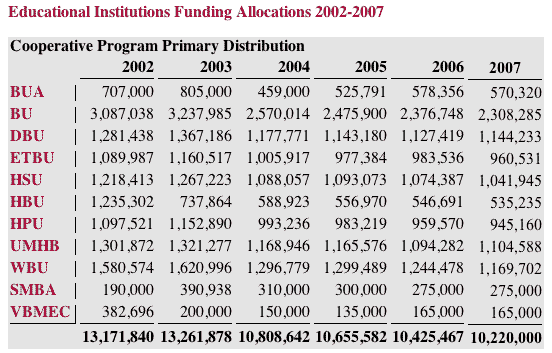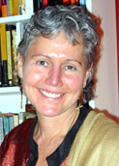Texas Baptist Forum
Posted: 10/26/07
Texas Baptist Forum
Secret searches
I agree with Professor Roger Olson that Baptist pastor-search practices are wrong (Oct. 1). But the real vice is the pretended secrecy of the process. An abrupt pastoral departure can result in disillusionment, anger and grief in the church. It is also rough on the departing pastor; some compare it to the feeling of cheating on your spouse.
| • Jump to online-only letters below |
| Letters are welcomed. Send them to marvknox@baptiststandard.com; 250 words maximum. |
“When I was an atheist, I thought Christianity was a dying religion. That’s nonsense; it’s like an explosion going off all the time.” Anne Rice Author of Christ the Lord: Out of Egypt, who previously wrote best-selling stories about witches and vampires (Charisma/RNS) “I’m very proud when I look and see guys praying in the end zone or praying after (a game). I see these guys as my sons. I gave birth to them. I see that as my purpose for playing in the NFL.” “The No. 1 lesson which makes the American people different from the politics of the news media of Washington is that this is a country that is sick and tired of (partisanship) and wants red-white-and-blue solutions.” |
Search committees are sworn to secrecy to “protect the continued ministry” of candidates. Nevertheless, the committees on which I have served were startled to learn how quickly word would spread, first among other ministers and then other congregations. Only the target church, which needs most to know, is kept in the dark.
What is more important than God’s call to members and ministers of a church? We are missing a huge opportunity to support our ministers when we keep the process “secret.” It is vanity to think we can protect the continued ministry of a pastor. That is up to God to do.
I believe the process should become fully open. Churches should be reminded regularly that ministers must be open to God’s call. Search committees should urge candidates to divulge contacts to the candidate’s church. Churches should require their ministers to disclose serious contacts, at least to key people and preferably to the entire church.
This is an idealistic but biblical position. It should be seriously discussed and implemented in our churches—which is where idealism should thrive.
Stan Joynton
San Angelo
More than personality
I must disagree with the letter from J.V. Thomas and his assessment of the conflict between the Baptist General Convention of Texas and Southern Baptist Convention (Oct. 15). Thomas seems to think the whole conflict was a simple personality conflict over unimportant issues. He stated, “During this time, a major shift took place in the SBC, which preceded an equally dramatic shift in the BGCT. … From the beginning, the problems were more about conflicting personalities than fundamental issues.” He could not be more wrong.
The new SBC leadership changed fundamental Baptist doctrines on many Baptist beliefs—priesthood of the believer, separation of church and state, and making the 2000 Baptist Faith & Message a document of doctrinal correctness by which Baptist believers are to be determined.
People were fired not over a personality dispute, but because they failed to meet the requirement of unquestioning adherence to the so-called “conservative resurgence” and the new SBC leaders. Missionaries, SBC agency executives and seminary professors were not dismissed over a personality difference. Even ordinary employees in low-level positions were fired because they belonged to the “wrong church.”
I agree: The BGCT/SBC conflict has become a nonissue, but only because the BGCT decided to resist falling into “lockstep” with the new SBC philosophy and changed doctrines. I also agree: It is definitely time to move on and resume fulfilling the Great Commission.
But let’s not ever fall into the trap of downplaying this very hurtful period in Baptist life as a mere personality conflict over unimportant issues.
Bob Campbell
Missouri City
BGCT horizon
The editorial on looking to the horizon for BGCT perspective (Oct. 22) is as encouraging as anything I’ve heard in recent days from anyone either directly connected with the BGCT staff or calling himself a Texas Baptist.
Clearly, there are concerns, but primarily there is strength in the BGCT. For each real or imagined problem, there are a thousand good things God has done in or through us. It isn’t merely a slogan; it’s the truth when we say that we’re better together. The collective IQ—and spirituality, and wisdom, and ability—is greater between us than that possessed by any one of us alone.
Heaven meets earth at the horizon. May that be what takes place among us as Texas Baptists during the remainder of this year, while many attend the annual meeting, and as a new year begins in a few weeks. Heaven meeting earth; we need it today.
David Troublefield
Wichita Falls
Christian walk
A Christian walk is not just from your car to inside a church building. A Christian walk is taking every step in life following the path Jesus set before us.
When we meet the hungry, do we feed them? When we meet the naked, do we clothe them? When we meet the lonely, do we comfort them? Do we express faith in the way we meet every situation in life?
Can those little ones who are watching us see us trusting in the Creator? We certainly hope so, because they will most likely follow the path we set before them.
Where are you leading your children and grandchildren? Is it the path to eternal life?
Daniel Younger
Itasca
Bring back Pinson
When I was employed by the BGCT from 1980 to 2001, I had a boss who would say, “It takes Southern Baptists five years to fire someone, but no one knows when they started.” He also would comment about Southern Baptists burying our wounded.
We Baptists are no better than secular companies that use money as an excuse to dismiss good people, and we should be ashamed. If we need more money for the budget, we need to look south. There might be $3 million given away we can get back.
Many of the dismissed employees told me they read about their terminations in the Standard before being told by their supervisors.
But didn’t I read that the “committee" or “man in charge” discussed it first with the committee and then notified supervisors and then dismissed staff? Who should I believe in all of this matter, and why should I care? The reason I care even though I have been retired six years is these people are my friends. We worked hard together to carry out strategies and God’s plans to reach Texas as we were led to believe. I know who I will believe, and you in the church should ask questions too.
I have an idea, but doubt it will happen. We need to ask the Executive Board to clean out the fourth floor and bring back Bill Pinson. He kept us alive and kicking during the late 1980s and 1990s and lost no money whatsoever.
Robert Parrish
Carrollton
Questionable nomination
I understand Roger Paynter is submitting a nomination for first vice president of the BGCT. Is he not the husband of a BGCT agency head? That may be allowable, but is it appropriate?
In my opinion, this represents a conflict of interest. I do not know the man who is being nominated. I’m sure he is a fine gentleman. However, the very fact that he is being nominated by Dr. Paynter causes me concern.
C.J. Malott
Midland
News of religion, faith, missions, Bible study and Christian ministry among Baptist churches, in Texas, the BGCT, the nation and around the world.


